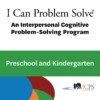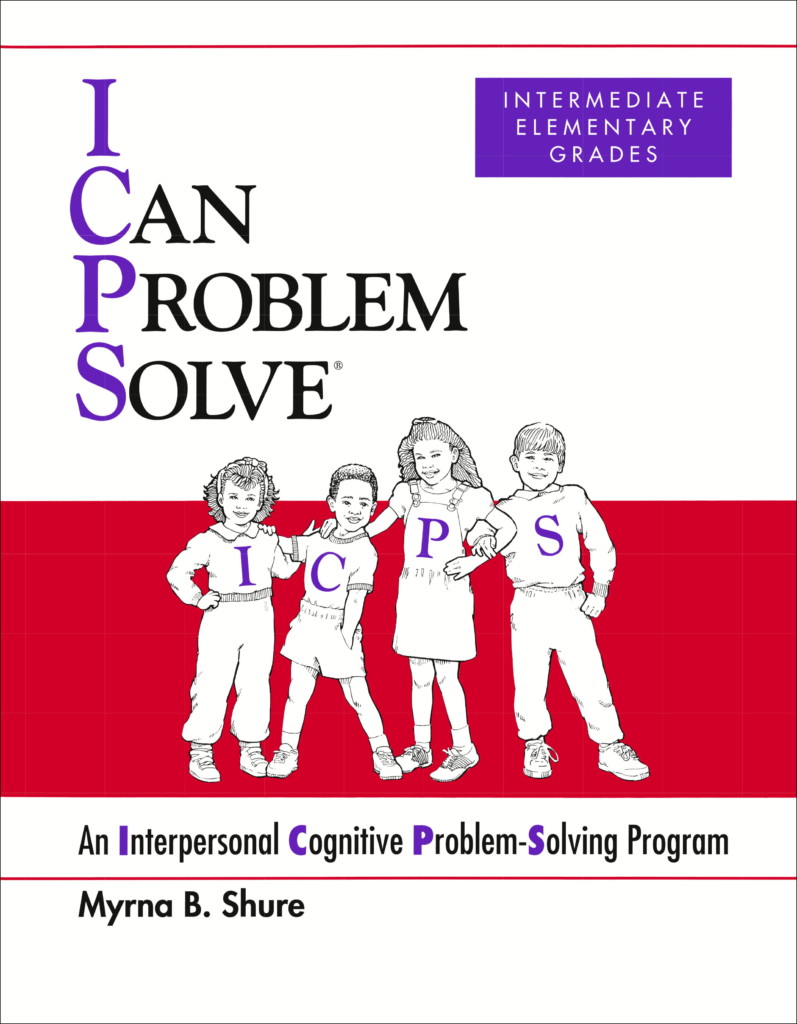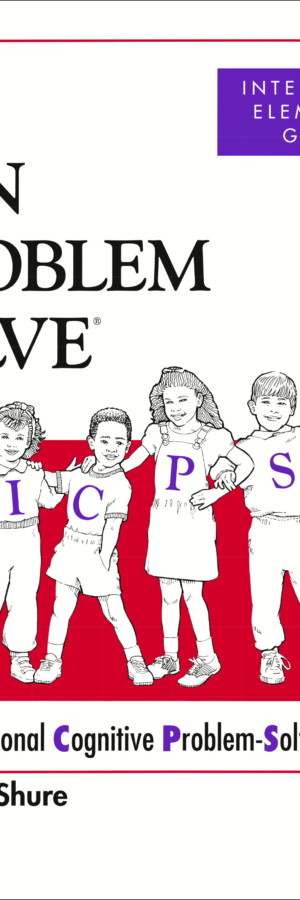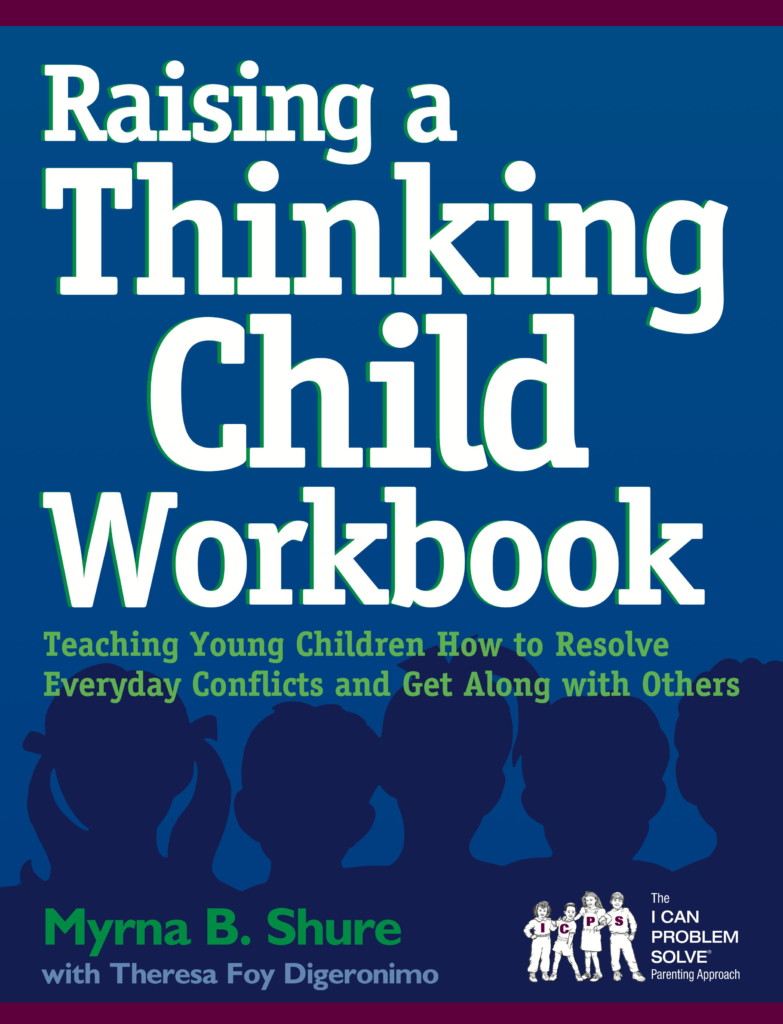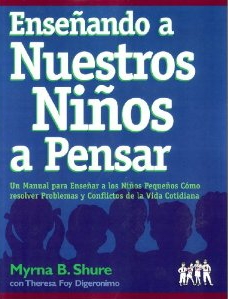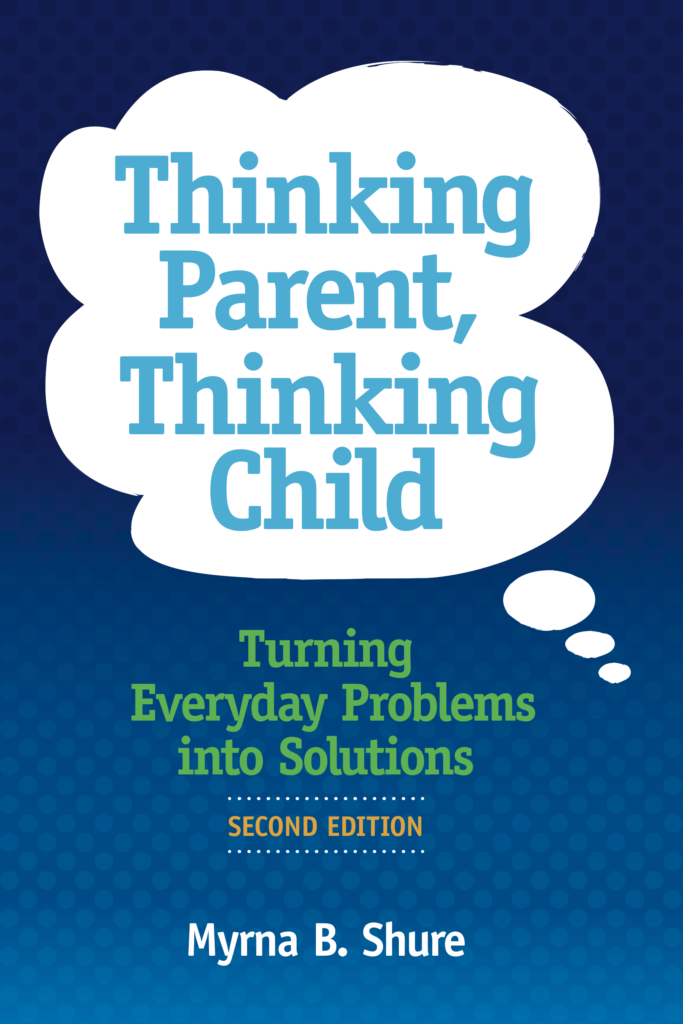NEW EDITION!

SELect PROGRAMS
The designation indicates that a program is evidence-based; well-designed and classroom-based program that systematically promotes students’ social and emotional competence, provides opportunities for practice, and offers multiyear programming; and delivers high-quality training and other implementation supports.
This new third edition of I Can Problem Solve (ICPS) is adapted to combine a preschool and kindergarten curriculum.
ICPS is an evidence-based, cognitive approach that teaches children ages 4 to 12 how to think – not what to think – in ways that help them learn to resolve interpersonal problems that arise with peers and adults. That approach, and how it applies to ICPS, is explained in more detail in this third, new edition.
New to the Third Edition:
For the children:
- Introductions and closing activities to provide transition into and out of ICPS lessons, prompt inquiry and enthusiasm, assist in review, and facilitate reinforcement of ICPS concepts.
For teachers:
- The purpose of lessons includes additional mediators related to social and emotional skill development and advanced cognitive skills. Some teacher scripts have been extended and modified, with suggestions for adaptations. Additional notes and HINTS have been provided to facilitate instruction and encourage prosocial behavior.
Illustrations:
- Some illustrations have been modified and updated, and additional illustrations have been made for use as reminders of ICPS language to be used in real-life.
The third edition further updates the earlier publications along three dimensions:
- Conceptual Issues,
- Content of Lessons, and
- Directions for Implementing Lessons.
The impact of ICPS is effective in part because of two unique elements of the program, from which the thinking styles are derived. The first is a series of vocabulary words, which Shure calls “ICPS Word Pairs.” These pairs include IS–NOT, SAME–DIFFERENT, and MIGHT–MAYBE. The second unique feature of the curriculum is what Shure coined “ICPS Dialoguing”— applied in real-life conflict and other problem situations. Instead of being told what and what not to do and why, the child actively participates in the conversation and learns to think for himself what and what not to do and why.
Carefully chosen word pairs and concepts are taught explicitly. How they provide the foundation for what we call “ICPS Dialoguing”—a necessary, unique approach that guides children’s behavior—is explained in detail. Also introduced in this new edition are ways that ICPS is relevant to updated developmental priorities:
- Social and emotional learning,
- Executive function,
- Early literacy, and
- academic readiness
This program is a revision of a curriculum originally designed in 1971. Developed by Dr. Myrna B. Shure for three age groups and supported by 25 years of meticulous research, ICPS is proven to prevent and reduce early high-risk behaviors such as impulsivity and social withdrawal, and to promote prosocial behaviors such as concern for others and positive peer relationships.
The lesson-games and real-life applications of concepts taught that are inside the pages of this manual are based on Spivack’s early premise that children’s behavior could be guided by how they think about what they’re doing, rather than focusing directly upon behaviors themselves.
Skills that children learn, called interpersonal cognitive problem-solving skills (also ICPS), guide children as early as preschool to think of more than one way to solve a problem (alternative solution thinking); what MIGHT happen next if a solution were carried out (consequential thinking); and, beginning at age 8, sequenced plans to reach a stated interpersonal goal (means-ends thinking or sequential planning). These skills provide an opportunity to acquire immediate ways to confront and resolve everyday events directly and with confidence AND to have the additional confidence to directly engage future and unknown interpersonal challenges.
Shown below is the Prosocially Yours podcast produced by Research Press. In this episode, host Elizabeth Hess interviews educator, trainer and co-author, Stephanie Colvin-Roy, about the new edition of the best-selling I Can Problem Solve – Preschool and Kindergarten curriculum.
Training/Consultation
The Center for Schools and Communities provides training and consultation for schools, facilities, or organizations nationwide. For more information and available dates, please contact:
Stephanie Colvin-Roy, Lead ICPS National Trainer
Center for Schools and Communities
Phone:717.763.1661 ext. 209
Email: icps@icanproblemsolve.info


